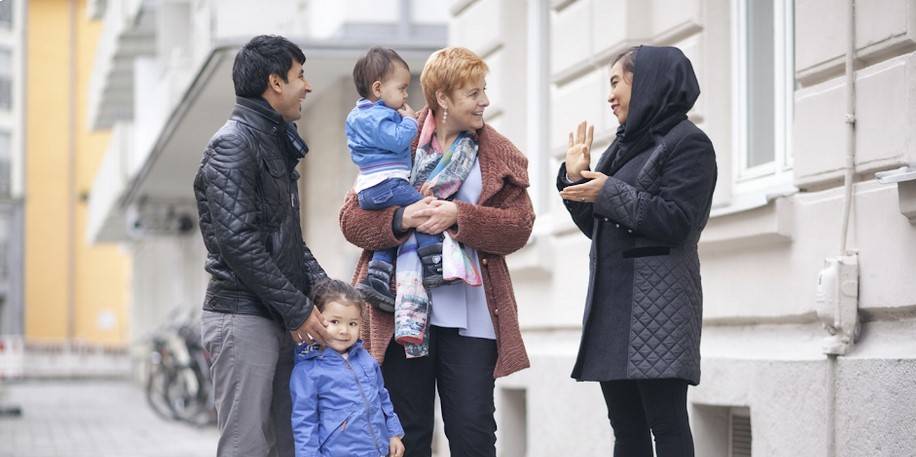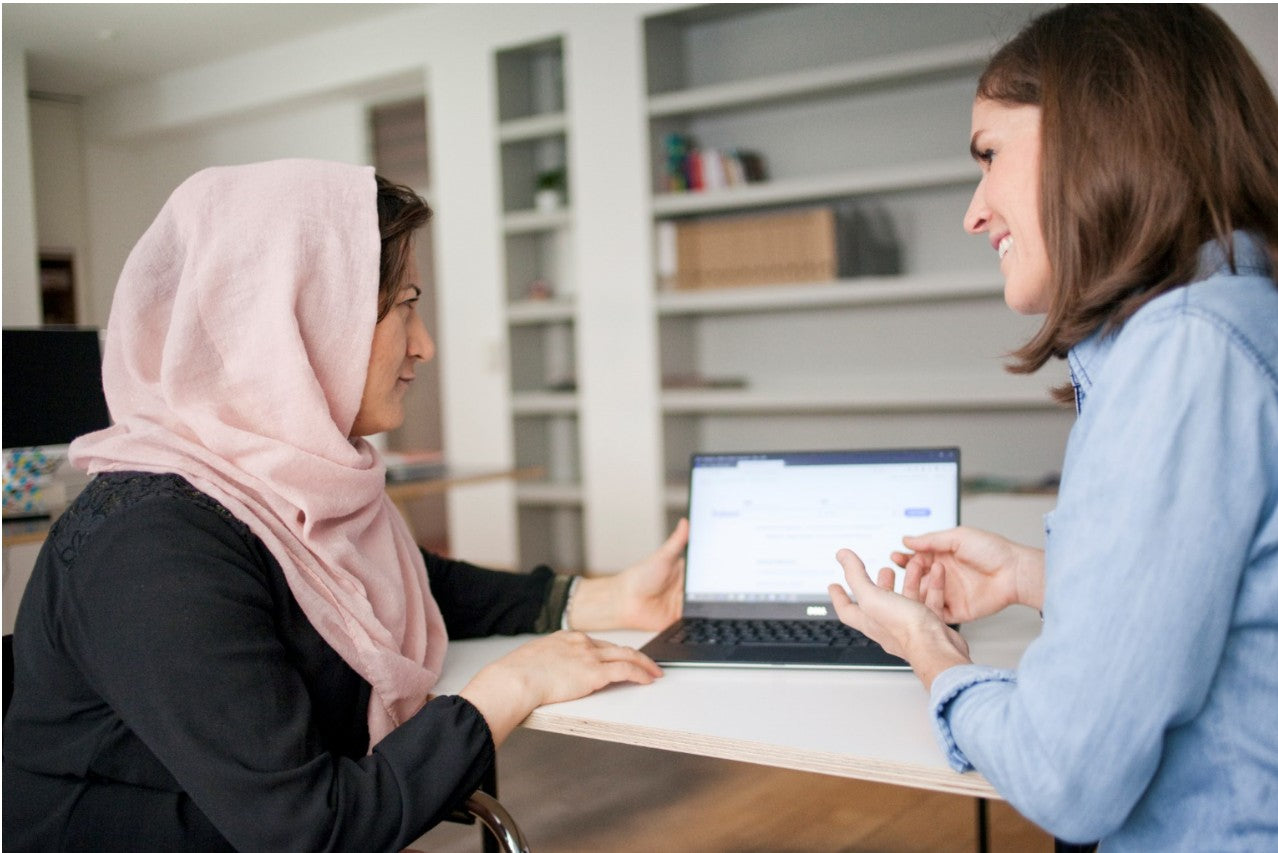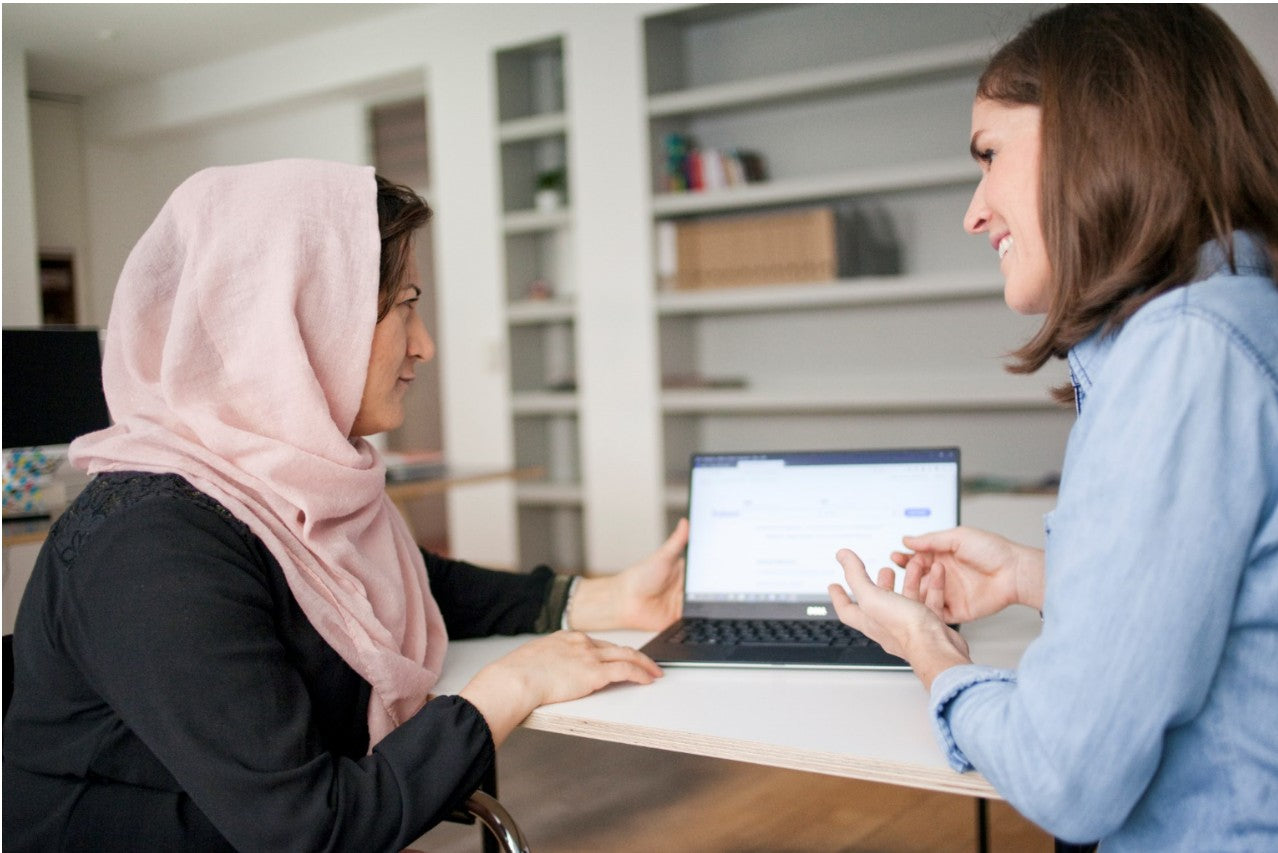Day 13
One Minute Translation at the Doctor's for Refugees in Germany
 Understand better, get well faster Understand better, get well faster
Understand better, get well faster Understand better, get well faster


Medical care for refugees without German language skills

need
Translations for refugees at doctor's appointments.
activity
Volunteer interpreters accompany refugees to doctor’s appointments to translate for them.
Measurable performance
Number of minutes or doctor's appointments during which refugees are supported by volunteer interpreters.
Result
It is ensured that the refugees understand all information about their health.
Systemically relevant impact
Refugees have unrestricted access to health care and can make independent decisions about their health.
background


The good deed
AboutGermany
Berlin
Capital city
83 240 525
Population
45,723.6
Gross domestic product
per capita per year
Rank 6 of 189
Human Development Index
(Human Development Index)




